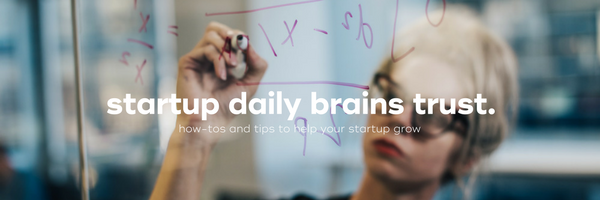By Dr Jeffrey Tobias
The statistics can be very discouraging to aspiring entrepreneurs, but here it is: around 90 per cent of technology startups never make it to a successful exit, despite the entry-level barriers to starting a business coming down further than ever before.
At some point we had to sit back and ask ourselves, why is the mortality rate in the startup industry so high?
I’ve had the privilege to work with numerous entrepreneurs studying for an MBA at the Australian Graduate School of Management and review their ideas and business plans. Many have since graduated and have returned with their fair share of stories – both successes and failures. Listening to them has allowed me to identify commonalities that I now share with every aspiring entrepreneur.
If you’re an entrepreneur reading this, here are three things that you should consider ensuring your venture has the best possible chance of success in today’s market.
Identify the real problem to be solved
One of the first things I often get entrepreneurs to do is to describe the real problem they are trying to solve. There is so much emphasis around achieving product market fit; so much so that the question of what needs the product fits into is often unclear. It starts with assumptions around a customer problem, then the solution, then the pivot as different customer needs reveal themselves and become the new focus.
That is a long and time-consuming process, hence a luxury that startups cannot afford. The key is to get the first question right: “What is the real problem that your customers face?”
Successful entrepreneurs resist the temptation to jump straight into problem-solving mode; instead they employ Design Thinking methods to, firstly, observe their customer’s lives. The objective is to empathise with the customer and reframe their problems as your own, thus allowing you to better identify root problems or form more accurate assumptions. This doesn’t just help you build a better business; it also informs your startup mission that all marketing and customer interaction would be centered upon.
Focus on the experience, not the product or service
Startups and corporates alike are used to pushing products and services. They develop products they fall in love with, and spend all their time and money in marketing – trying to convince their customers that their product or service is better than the competition’s.
The reality is that customers don’t want products or services – they want experiences. One of my favourite sayings is that when you go to the hardware store to buy a drill, you actually don’t want the drill – you want the hole! And actually, what you really want is the experience of what you do with the hole once it has been drilled. Successful startups and corporates are now focusing heavily on experiences so what is the experience of your corporate or startup?
Test rapidly, but with focus
Having identified a genuine human problem, entrepreneurs can now embark on the familiar process of rapid testing and re-iteration. Combining design thinking with the lean startup process provides entrepreneurs with better anchors to base their tests; every pivot and iteration goes toward finding better ways to solve the customer problem, rather than just finding ways to reinvent a product.
This combined process helps startups stay on the right track, minimise detours, get quality feedback, improve investor confidence and more crucially, keep the customer at the center of the process. Taking full advantage of this allows startups to maximise the use of their runways; pushing their solution to market in a shorter timeframe and quickly achieving profitability.
This emphasis on spending a huge amount of your startup’s initial life on locating the human need, then building all design and business decisions around those needs, is quite uncommon in the startup world, as it is in the corporate world. That’s why it’s critical to find the right balance between empathising with your customers and hitting the milestones required for minimum viable product.
Dr Jeffrey Tobias is an AGSM Fellow at UNSW Business School and Managing Director of the Strategy Group. He specialises in innovation and collaboration, and works with organisations to improve customer experience and increase revenue growth by transforming the way they do business. He brings this wealth of experience to his teaching, on both postgraduate and executive education programs.

Want more advice and how-tos from experts? Check out our Brains Trust




















Trending
Daily startup news and insights, delivered to your inbox.